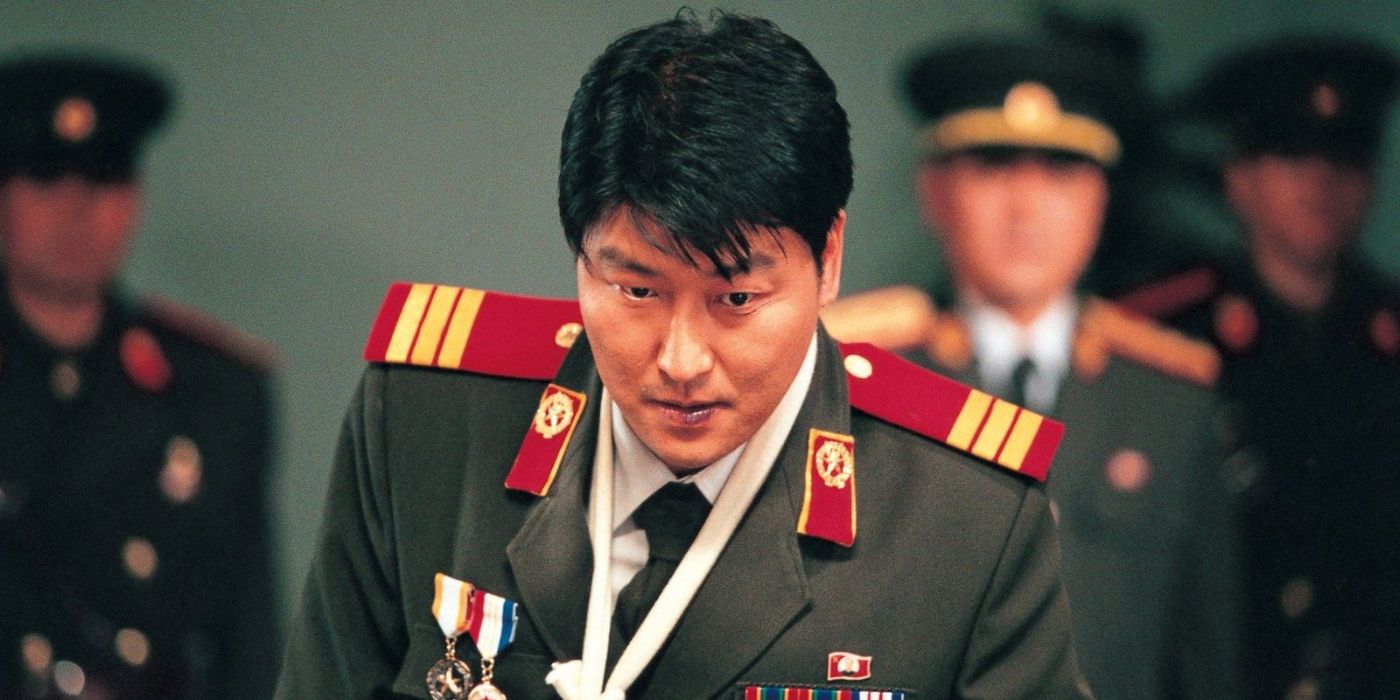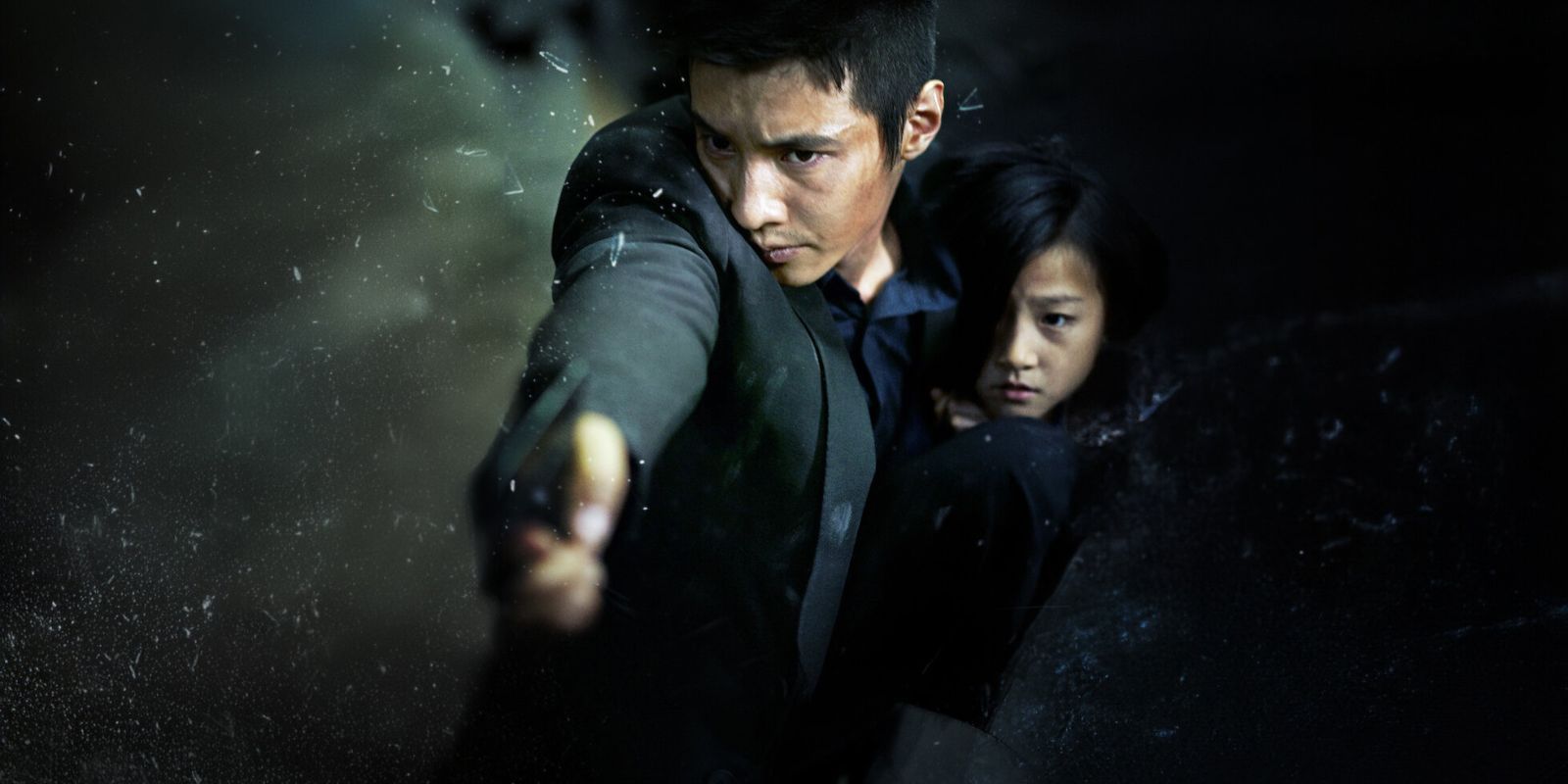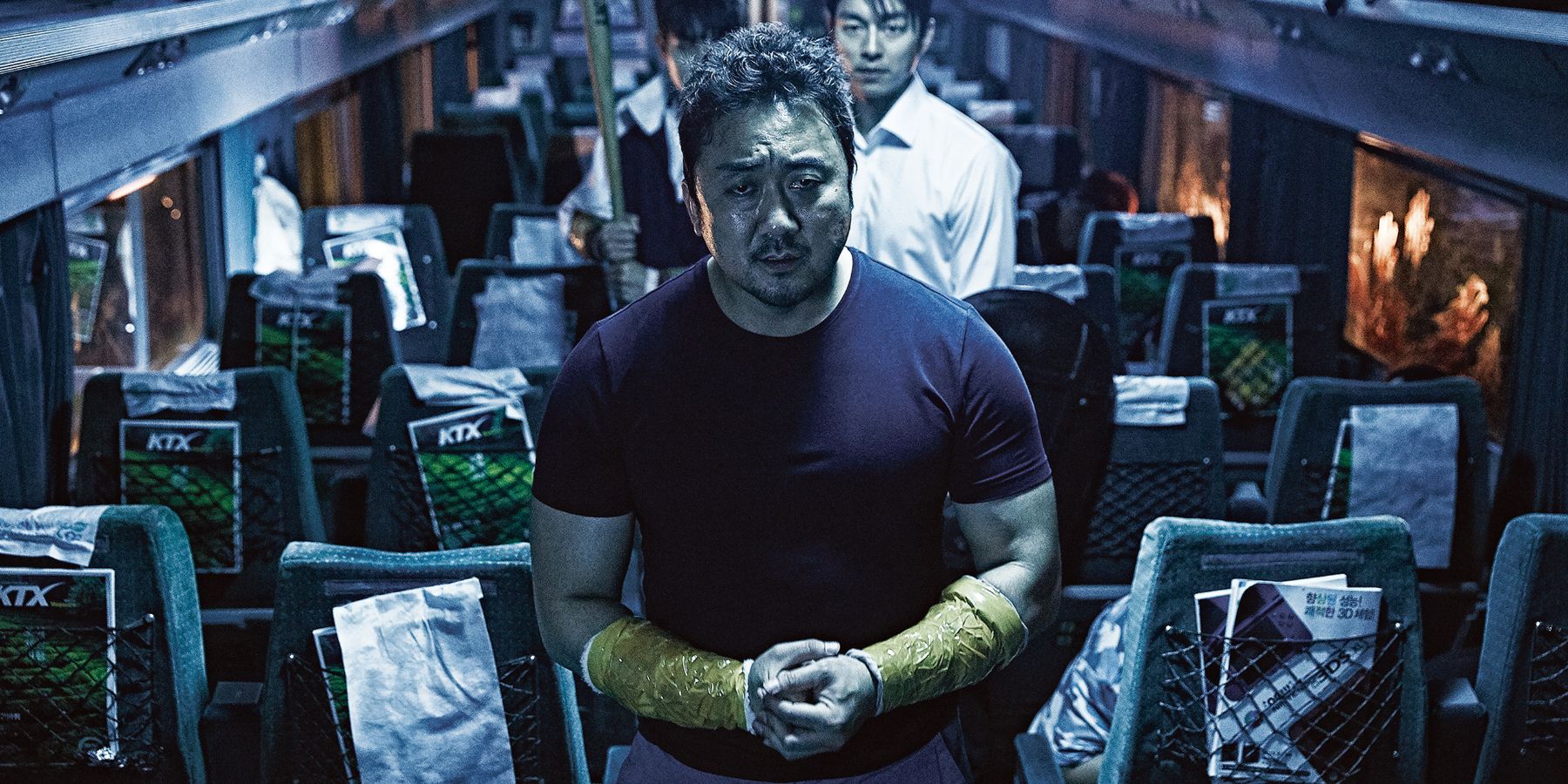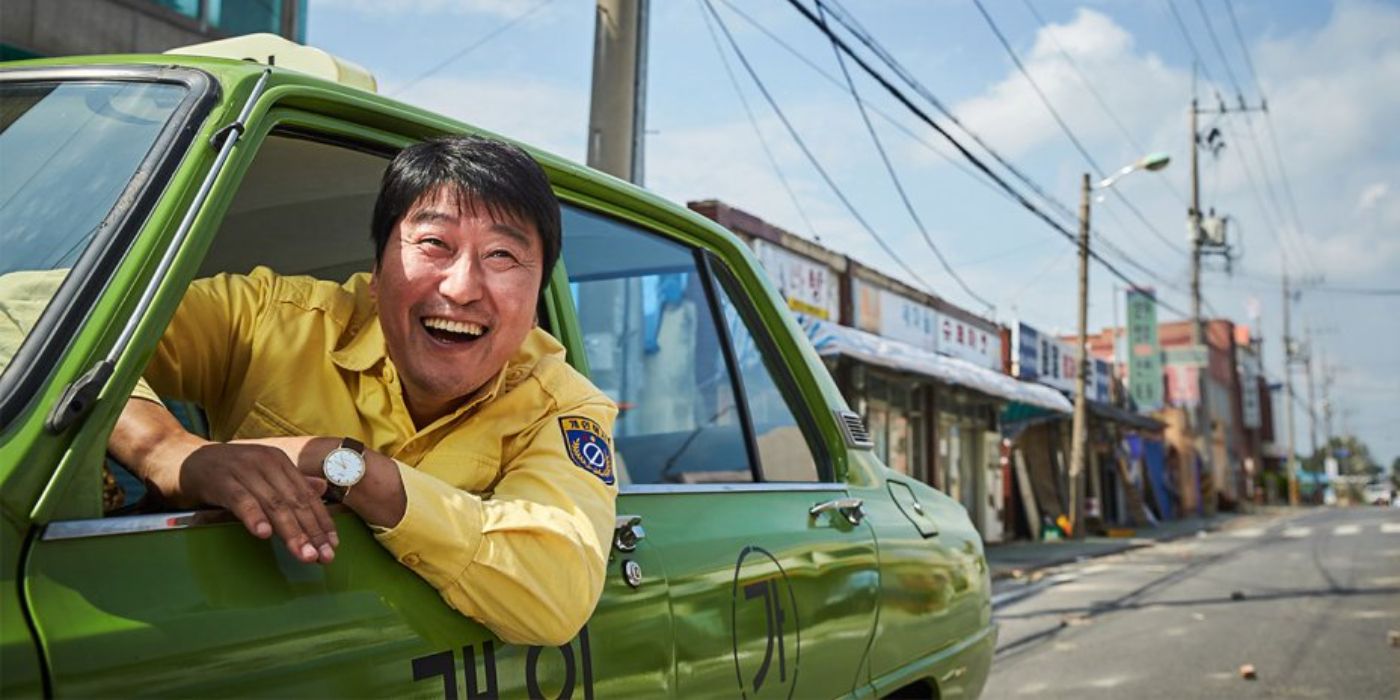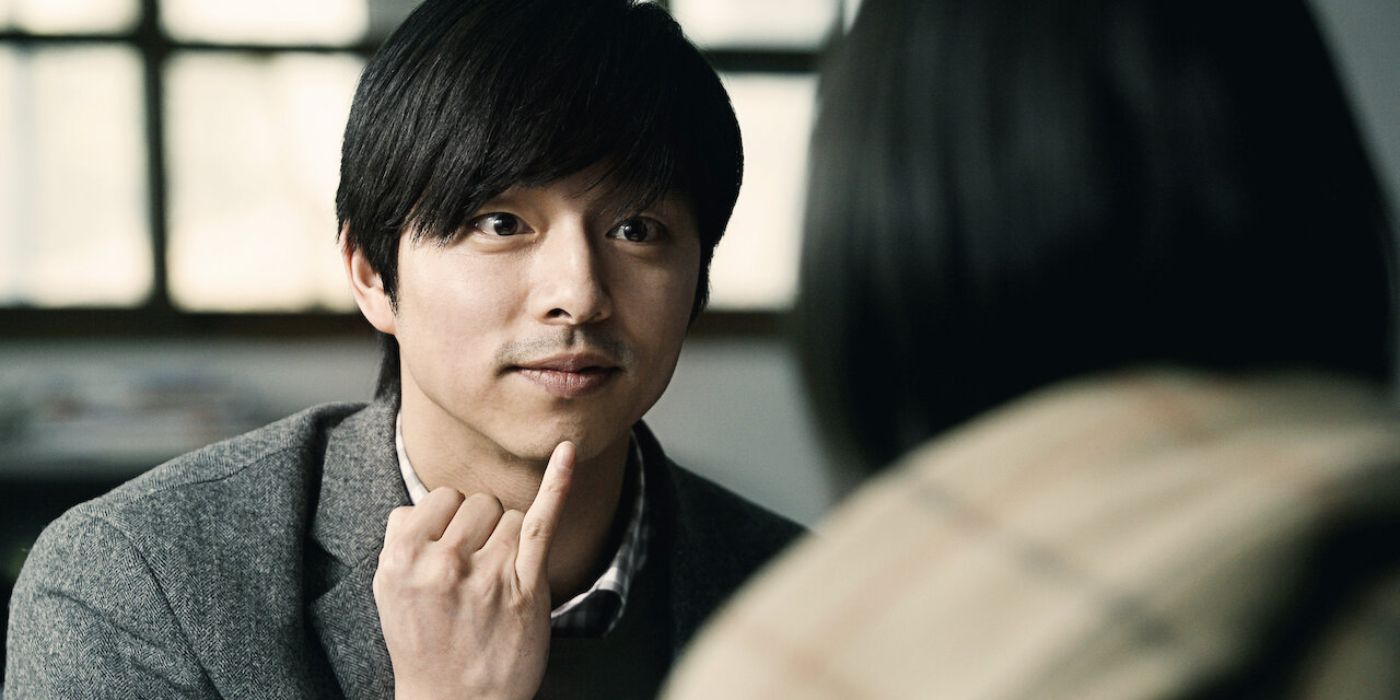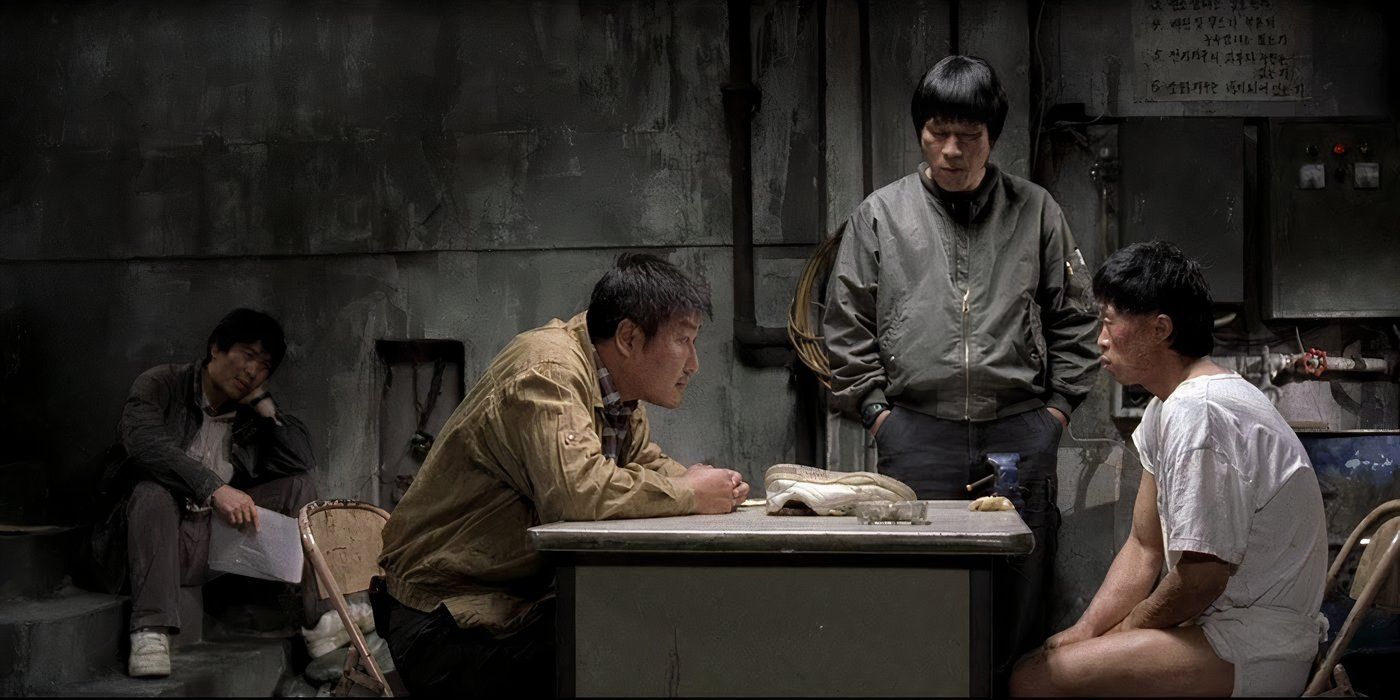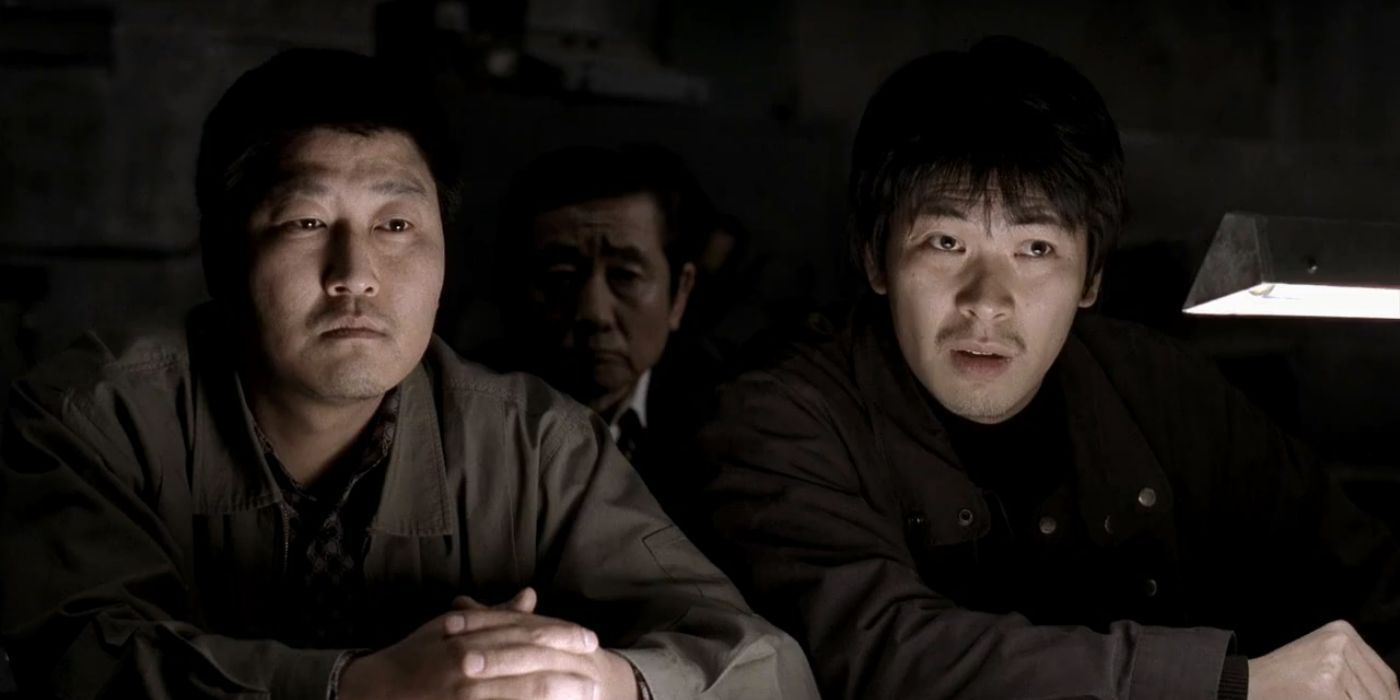
Obviously, there are more than just ten South Korean movies that are bangers from start to finish, and that’s why we say beauty is in the eye of the beholder. Whether you prefer those more romantic movies, like A Moment to Remember, the thrillers like Forgotten, or straight-up gorefest vibes like I Saw the Devil, it’s undeniable that you’re a great fan of South Korean cinema.
While choosing only ten is tough, these specifically have something special; they were either milestones for their directors and actors or milestones in representing and depicting certain areas of society that were previously unquestioned. They can also count as essentials, but though there are plenty more great ones, these ten South Korean movies are bangers from start to finish.
10
‘The Wailing’ (2016)
Directed by Na Hong-jin
The Wailing is one of those perfect movies that lands every minute despite a long runtime and intertwining narratives. It’s an intricate exploration of superstition, tradition, and urban legends, wrapped in a thriller that examines fear of strangers, new things, and change. Sounds complex, and it is, but it’s also just a scary and overall great atmospheric horror/thriller to indulge in when you have the time; a banger from start to finish, no doubt about it.
The Wailing is set in a rural Korean village where a mysterious Japanese man (Jun Kunimura) moves, and his arrival coincides with a strange plague killing people in the village. Local police officer Jong-goo (Kwak Do-won) investigates the plague and is forced to deal with it in his own home, too. The movie features an extended scene of a shamanic ritual, something that’s still highly revered in South Korea; The Wailing, in general, is an interesting way to learn more about some of the country’s folklore. Besides that, it’s just a banger movie, really.
9
‘JSA: Joint Security Area’ (2000)
Directed by Park Chan-wook
Many know Park Chan-wook for directing Oldboy, which is no doubt a banger movie, but it might be too difficult for some people. Still, it’s hard to say that any of Park’s movies are easy to watch, since he typically makes movies about the darkest corners of the human psyche. Joint Security Area (JSA) gives a similar vibe, though it’s also one of the more optimistic of Park’s movies all around; it’s also the one he prefers people to think of as his directorial debut (since he had complete creative control over it).
JSA is set in the non-fictional Joint Security Area, aka the Demilitarized Zone between North and South Korea. A set replica was made, of course, and the movie stars some of the biggest actors of today: Song Kang-ho, Lee Byung-hun, and Lee Young-ae; Song portrays the North Korean Sergeant Oh, while Lee portrays the South Korean Sergeant Lee. Lee Young-ae stars as a neutral party investigator, sent to find out why a group of North and South Korean soldiers—including survivor Sergeants Oh and Lee—got involved in a gunfire massacre. It’s kind of a murder mystery thriller, but it’s also a drama about human connection, and it’s so, so good.

Joint Security Area
- Release Date
-
September 9, 2000
- Runtime
-
108 minutes
- Director
-
Park Chan-wook
- Writers
-
Sang-yeon Park, Jeong Seong-san, Park Chan-wook, Kim Hyun-seok, Lee Mu-yeong
8
‘Miracle in Cell No. 7’ (2013)
Directed by Lee Hwan-kyung
Miracle In Cell No. 7 is one of South Korea’s most popular movies; it’s one that fans of their cinema turn to as a sort of modern classic, a must-see, and a favorite recommendation. But more than just being like salt in every dish, Miracle In Cell No. 7 is a great movie and highly recommended for exactly that reason. It’s a touching dramedy about an unfairly sentenced man and his unbreakable bond with his young daughter. This tearjerker succeeds in avoiding clichés and too much melodrama, replacing it with light-hearted comedy and inspirational character building.
Miracle In Cell No. 7 follows Yong-gu (Ryu Seung-ryong), who gets convicted of attempted rape and murder of a little girl after a witness sees him trying to perform CPR on her. Yong-gu is beaten into confessing to the crime, despite simply trying to save the girl’s life, and he becomes the fall guy for the crime because of his mental disability. He gets placed into cell No. 7 with other prisoners, befriending them after saving one of their lives. The story was based on a real-life event that took place in a similar fashion to the film; the convicted man, Jeong Won-seop, was sentenced in 1972, paroled in 1989, and officially acquitted of the crime in 2023.
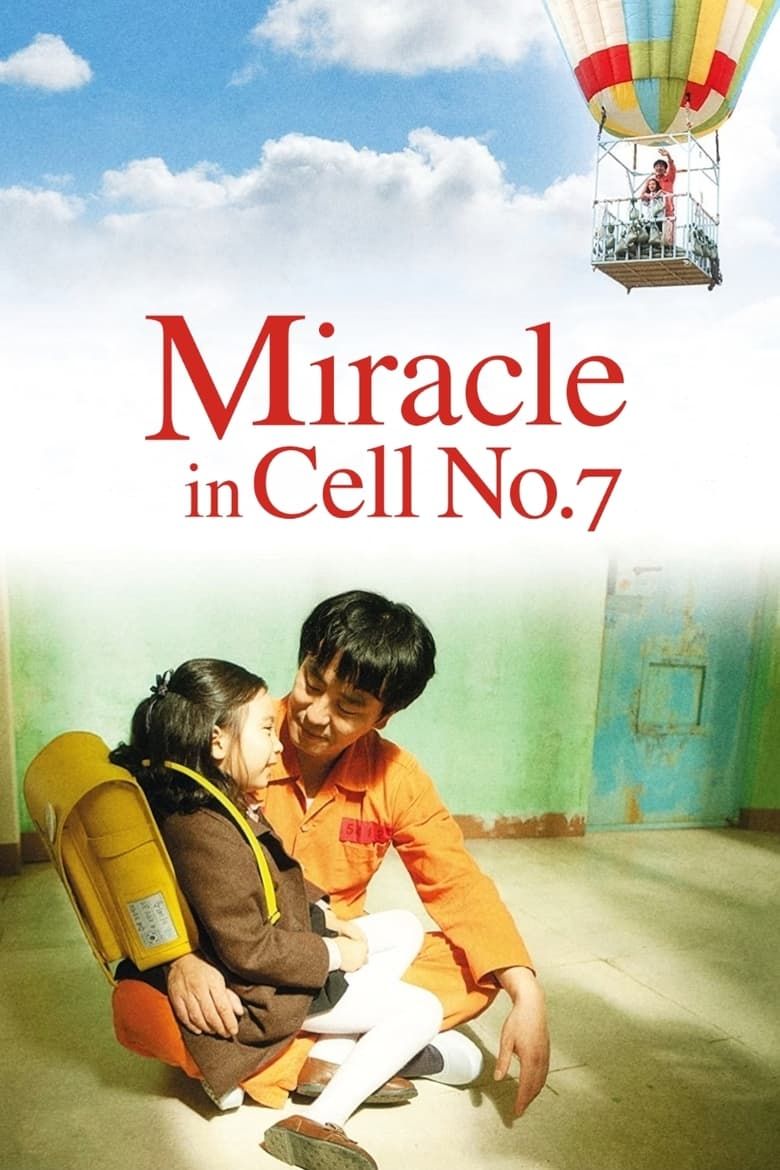
Miracle in Cell No. 7
- Release Date
-
January 23, 2013
- Runtime
-
127 minutes
-

Ryu Seung-ryong
Lee Yong-gu
-

-

Kal So-won
Young Ye-seung
-

Jung Jin-young
Jang Min-hwan
7
‘The Man From Nowhere’ (2010)
Directed by Lee Jeong-beom
The Man from Nowhere is a movie that left a lasting legacy on more than just South Korean cinema; it’s one of the action movies that impacted cinema in the West, including how to choreograph great fights and set up revenge stories to be poignant and attention-grabbing. The movie is a milestone in that sense, but it’s also memorable for its lead, Won Bin, for whom this was the last acting role before he decided to retire from the acting business. The Man from Nowhere also stars the recently deceased Kim Sae-ron in one of her first film roles at only 10 years old.
The Man from Nowhere follows a man with a mysterious past, Tae-sik (Won). He owns and runs a pawnshop and has no friends or family; when he befriends 10-year-old So-mi (Kim), whose mother is always absent, he becomes protective of her. After So-mi is taken hostage by the people after her mother, Tae-sik reveals his assassin skills and martial arts knowledge. The Man from Nowhere is such a banger action thriller that you’ll be impressed by how many newer movies feel like an homage to it; if you haven’t seen it before, it might look like every recent action movie, but remember—The Man from Nowhere came first.
6
‘Train to Busan’ (2016)
Directed by Yeon Sang-ho
Fans of zombie horror cinema swear by Train to Busan, one of the most important contributions to the genre, well, of all time. This exciting movie doesn’t let you take a long breather in between action sequences; you can pause for a moment, but it’ll just push you back in, whether you’re ready or not. Creator Yeon Sang-ho has made a lot of horror shows and films, but Train to Busan is so superbly crafted that it can and should be considered a start-to-finish banger. Gong Yoo and Don Lee take the lead in this zombie action horror.
Train to Busan follows the passengers on a KTX bullet train going from Seoul to Busan. Among them are businessman Seok-woo (Gong), who travels with his estranged daughter to Busan; the pregnant Seong-kyeong (Jung Yu-mi) and her husband, Sang-hwa (Don Lee); and high school student and baseball player Yong-guk (Choi Woo-sik). A woman infected with a zombie virus enters the train at the beginning of the journey, and these characters have to fight off hordes of hungry zombies on a running train while trying to stay alive. From start to finish, Train to Busan is nerve-wracking and exciting, and it will make you shed a tear or two as well.
5
‘A Taxi Driver’ (2017)
Directed by Jang Hoon
A Taxi Driver is another movie similar to Miracle In Cell No. 7—a staple of South Korean films, a moving drama based on real life, and a drama that expertly blends political themes with the heaviness of life and some light indulgence in comedy. Song Kang-ho stars as the lead, the eponymous taxi driver, who becomes unintentionally involved in one of South Korea’s biggest political events—the Gwangju Uprising of 1980. The movie was based on the memoir of German journalist Jürgen Hinzpeter, who was in Seoul and driven to Gwangju by Kim Sa-bok. Considering he only knew him during their ride, most of the personal details about Kim in the movie were dramatized for film purposes; the rest is fact.
A Taxi Driver follows Kim Man-seob, a cabbie who overhears a colleague bragging about landing the chance to drive a journalist to Gwangju for a lot of money. Man-seob steals the journalist from his colleague and offers to drive him; the story follows their road trip and subsequent involvement in the Gwangju Uprising. This uprising began after a college student died at the hands of the police during a nationwide military regime; the murder sparked protests and a student uprising that resulted in overthrowing the government and exiting a military state.
4
‘Silenced’ (2011)
Directed by Hwang Dong-hyuk
Silenced is another tragic story that inspired viewers to seek further justice from the South Korean criminal system; this time, the story revolves around the continuous abuse and sexual assaults on the students of the school for deaf children. Several faculty members were accused and then charged with heinous crimes, and the movie shows the case procedure, court hearing, and sentencing. Gong Yoo, who became a mainstream star because of this film, portrays a new teacher in the school who uncovers the crimes.
Silenced is set in a fictional city of Mujin, based on Gwangju, where the real school was. Kang In-ho (Gong), a new art teacher, arrives at the local school for deaf children, but realizes the students are aloof and distant, often avoiding him. As In-ho wishes to show them he cares about them, he uncovers a sinister string of events and abuse within the school. The movie sparked a public outcry for stricter punishments for child abusers and those committing crimes against people with special needs. This soon triggered a declaration of the Dogani Law (the original name of the movie), which removed the statute of limitations on such crimes. The movie is difficult to watch, but it’s excellent from beginning to end and an important piece of modern Korean history in many ways.
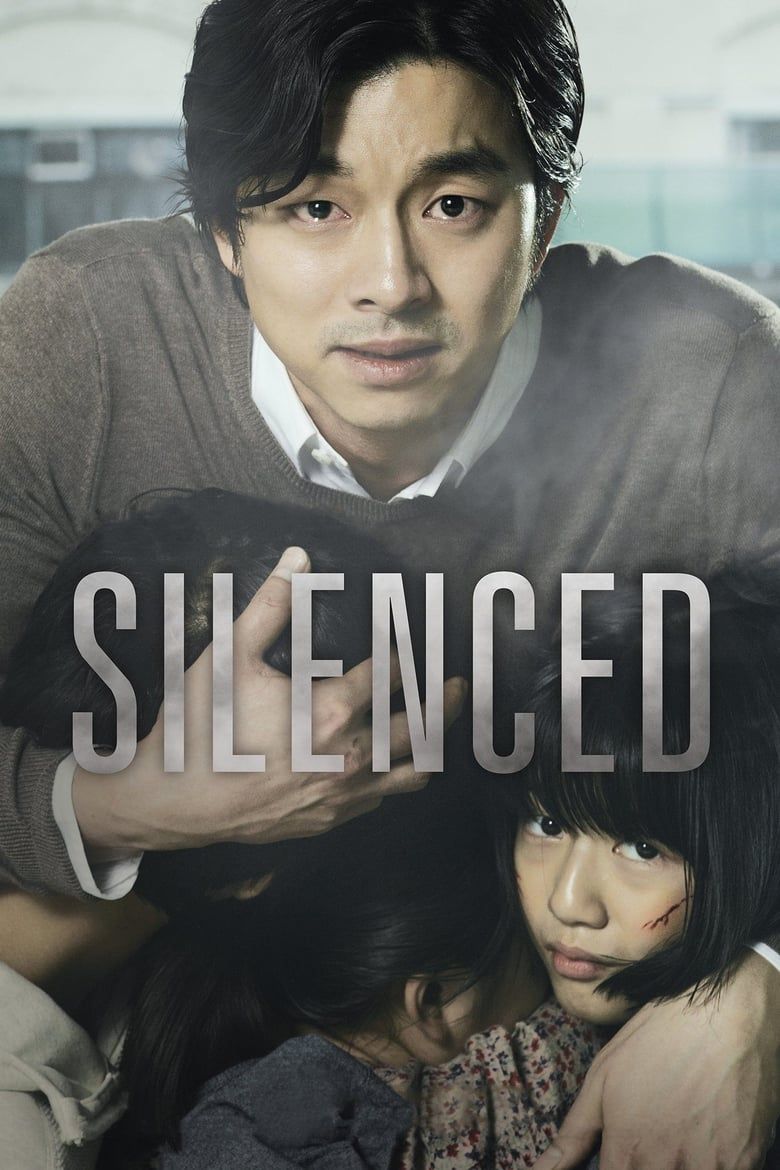
Silenced
- Release Date
-
September 22, 2011
- Runtime
-
125 Minutes
- Director
-
Hwang Dong-hyuk
- Writers
-
Hwang Dong-hyuk
3
‘Spring, Summer, Fall, Winter… And Spring’ (2003)
Directed by Kim Ki-duk
Kim Ki-duk was one of the most brilliant visual poets hailing from South Korea; his movies are beautiful tales of humanity, from meditative, quiet moments to intricate and troubled romances. His work was often featured in film festivals, and Spring, Summer, Fall, Winter… And Spring is one of the most awarded movies featured in international festivals. Roger Ebert opens his review of the movie with the words: “Rarely has a movie this simple moved me this deeply. I feel as if I could review it in a paragraph or discuss it for hours.”
Spring, Summer, Fall, Winter… And Spring is set in a small floating Buddhist monastery and depicts a year in the lives of an experienced monk, a master (Golden Globe winner Oh Yeong-su) and his young apprentice (Kim Young-min). The movie, through seasons, explores human emotions and psyche, from love, growth, and joy to jealousy, hate, and grief. It’s quite a slow burn, but every minute of it is worth watching. A beautiful and meditative piece about life like this one is an underrated gem, but also a great way to remember director Kim and his enduring legacy.
2
‘Parasite’ (2019)
Directed by Bong Joon-ho
Multiple Oscar winner Bong Joon-ho and his multiple Oscar-winning movie Parasite have to be among the ten banger movies because all those awards weren’t given out for nothing. Parasite is a great feat of modern filmmaking, with Bong writing the movie based on his personal experiences as a private tutor to a wealthy friend. The set was specially built, and the themes of classism and social and wealth inequality were ingrained in every aspect of the film. The movies that inspired Parasite are the 1960 Korean thriller The Housemaid and Akira Kurosawa‘s High and Low.
Parasite follows the Kim family, working-class people hustling their way into some earnings; the son of the family, Ki-woo (Choi Woo-sik), is approached by a school friend and recommended for his old position as an English tutor to the daughter of a wealthy family. Soon, Ki-woo makes it possible for the rest of his family to infiltrate the home and mooch off them, but something more sinister is happening at the wealthy house. The movie changes the pace halfway through and makes the story even more interesting; if you still haven’t seen it—good for you. You’re in for a magical, disturbing thrill.
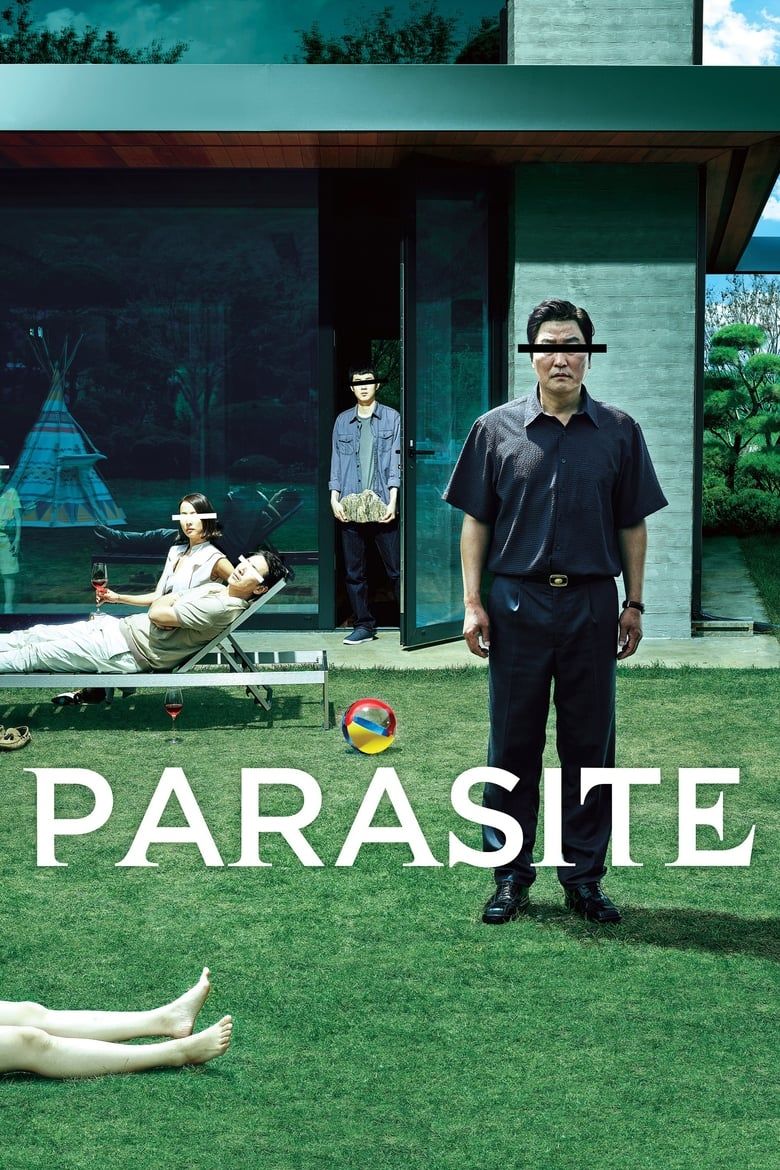
Parasite
- Release Date
-
May 30, 2019
- Runtime
-
133 minutes
1
‘Memories of Murder’ (2003)
Directed by Bong Joon-ho
One of the most perfect movies ever made, Memories of Murder, is just a different level of a police procedural experience. It was based on a play from 1996, Come to See Me, and both pieces were inspired by South Korea’s most notorious serial murders from the 1980s, known as the Hwaseong Murders; the culprit wasn’t found until 2019. The Hwaseong Murders were an endless inspiration for many pieces of media, from Memories of Murder to the K-drama Signal, and in general, an obsession over cold cases rose in South Korean media with each new mention of the killings.
Memories of Murder was directed by Bong Joon-ho and stars Song Kang-ho, his most frequent collaborator, as the lead detective in Hwaseong, Park Doo-man. He and his partner, Yong-koo (Kim Roi-ha), work on solving the murders with everything they’ve got—including eliciting false confessions from innocent residents. When a detective from Seoul is sent to Hwaseong to help, Park begins transforming into a serious, justice-driven detective. The story incorporates character development as much as it follows the case. At the time of the movie’s release, it was well-known that the culprit still wasn’t found, so the movie was always going to be more of a study of events and the people involved, anyway. Despite kind of knowing the ending, the movie is a banger from its first to its final moments.
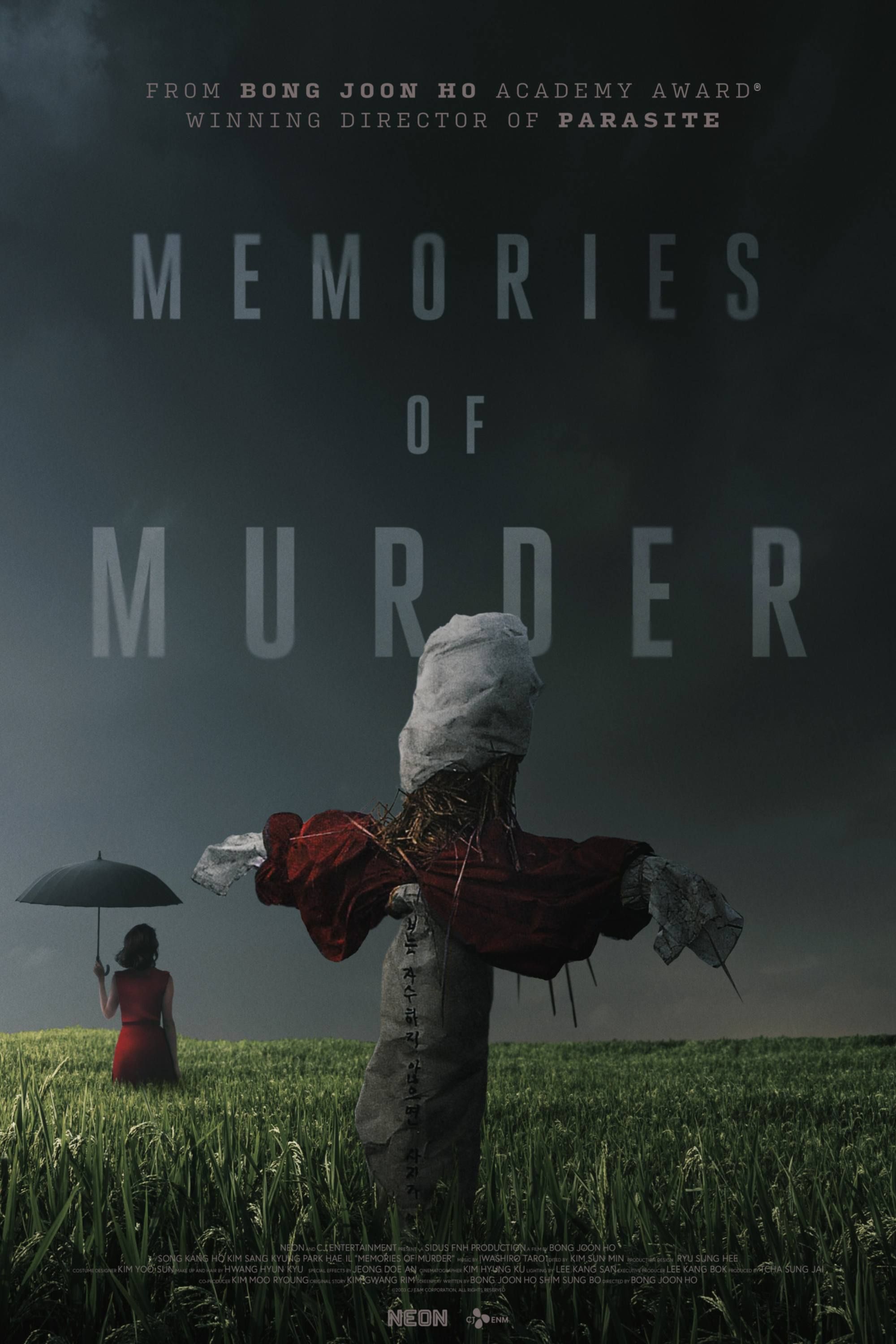
Memories of Murder
- Release Date
-
May 2, 2003
- Runtime
-
132 Minutes
- Director
-
Bong Joon Ho
- Writers
-
Bong Joon Ho, Kwang-rim Kim, Sung-bo Shim
Source link


